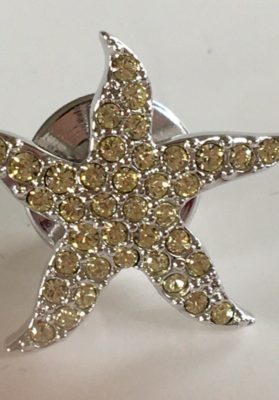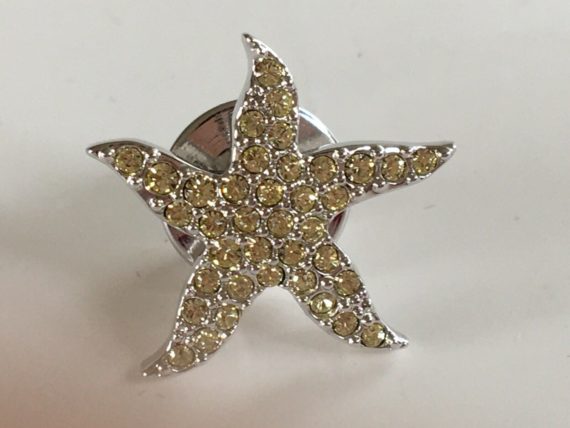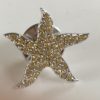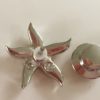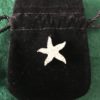Description
Swarovski Crystal Community Starfish Tack Pin
Community starfish pin
Swarovski code numbers: 903 498 /903498
This starfish pin comprises jonquil (pale yellow) crystals, and is 1/2” (13mm) long. This pin was made to complement the Community Annual Edition and was presented to SCS members at events.
This Swarovski Crystal Community Starfish Tack Pin will make a great addition to your collection. Photos do not do justice.
Swarovski AG is an Austrian producer of luxury cut lead glass, headquartered in Wattens, Austria.
History
Daniel Swarovski, the founder of the company (October 24, 1862 – January 23, 1956), formerly Daniel Swartz, was born in northern Bohemia (now the Czech Republic). His father was a glass cutter who owned a small glass factory. It was there that the young Swarovski served an apprenticeship. He became skilled in the art of glass-cutting. In 1892 he patented an electric cutting machine that facilitated the production of crystal glass.
In 1895, Swarovski financier Armand Kosman and Franz Weis founded the Swarovski company, originally known as A. Kosman, Daniel Swartz & Co., which was later shortened to K.S. & Co. The company established a crystal cutting factory in Wattens, Tyrol (Austria), taking advantage of local hydroelectricity for the energy-intensive grinding processes Daniel Swarovski patented.
Nadja Swarovski, the founder’s great-great granddaughter, is a member of the Swarovski executive board.
The Swarovski Crystal range includes crystal glass sculptures and miniature, jewelry and couture, home decor, and chandeliers. It is best known for its small animal figurines which have loyal and very longstanding collectors and fans.
All sculptures are marked with a logo. The original Swarovski logo was an edelweiss flower, which was replaced by an S.A.L. logo. The logo was finally replaced with the current swan logo in 1988.
Swarovski coats some of its products with special metallic chemical coatings which creates crystal glass that lets light refract in a rainbow spectrum. For example, Aurora Borealis, or “AB”, gives the surface a rainbow appearance.
Swarovski released Xilion in 2004, a copyrighted cut designed to optimize the brilliance of Roses (components with flat backs) and Chatons (diamond cut).

